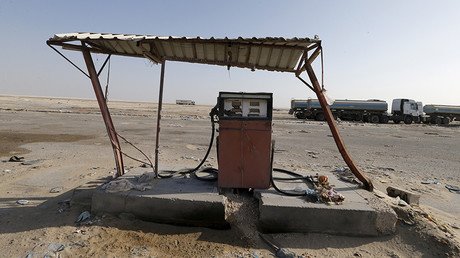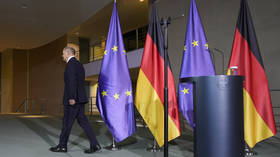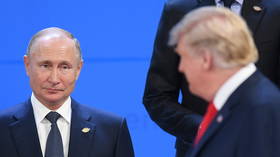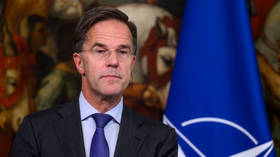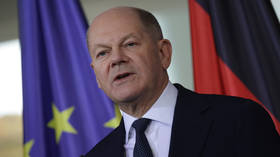Speculators cut bearish bets on oil

Crude prices have rebounded 50 percent since February. At the same time, since the beginning of February the US Commodity Futures Trading Commission (CFTC) has seen the biggest liquidation of short positions on record.
Short positions on US benchmark WTI crude, or in other words, bets that prices will go down, have fallen by 131,617 contracts, or 67 percent, since the beginning of February.
According to Bloomberg, over the past 10 years there have been only two other seven-week short-covering streaks: in September 2009 and in December 2012. In both cases, the liquidation of short positions was much slower and was accompanied by a rally in oil prices.
During the week ending March 22, market participants cut another 25,435 negative forecasts, bringing down the number of bearish contracts to 64,431, which is a nine-month low.
However, bets on oil prices going up haven’t seen a corresponding growth. During the same week, long positions increased by just 5,844 contracts, a fraction of the nosedive in bearish outlooks.
This has made investors think the oil prices are unlikely to rise further. "The rally has come from shorts getting scared out of their positions, and you’re not seeing a lot of money coming in on the long side. It really calls into question the fortitude and staying power of the rally," John Kilduff, partner at Again Capital LLC, a New York hedge fund focused on energy told Bloomberg.
On Monday, crude prices were up with Brent at $40.6, WTI at $39.79 per barrel, which is still off the rally’s peak of $41.45 seen on March 22.
The oil market is now waiting for the world’s leading crude producers, headed by Russia and Saudi Arabia, to meet on April 17 in Qatar to discuss an output freeze.
According to OPEC Secretary General Abdalla Salem el-Badri, these talks may be successful even without Iran’s participation. Tehran wants to boost its production to the pre-sanctions level of four million barrels per day (bpd) from the current 2.8 million bpd.
However, Russia’s Lukoil Vice-President Leonid Fedun has been skeptical about Iran's ability to significantly boost production, saying it can add only 300,000-400,000 barrels to the market without serious foreign investment.
Another OPEC member to skip the meeting is Libya. In the aftermath of the civil war, the country’s oil production is down by 75 percent. Tripoli now wants production to recover.
